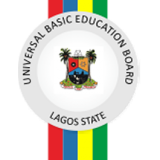Some Organisations and government bodies, recently joined their counterparts, the world over, to mark the 2021 International Day of Education which is held yearly on January 24, in celebration of the role of education for peace and development.
With this year’s theme, ‘Recover and Revitalise Education for the COVID-19 Generation’, Action Aid Nigeria, a non-governmental organisation, called on the federal government to increase allocation for education to between 15 and 20 percent of public expenditure.
The Coordinator, Ms Lola Ayanda in a statement made available to THISDAY, said there is the need to revise and increase allocation for education to between 15 percent and 20 per cent of public expenditure.
According to her, “there is a need to increase the tax base by capturing the informal sector to increase resources, working towards a minimum tax to GDP ratio of 20 per cent, provide free quality education for all and halt the dangerous trends of privatisation and commercialisation of education.
She called for inclusive educational systems and institutions; improved quality of teaching through adequate recruitment, remuneration and continued teacher training and re-training.
She said there must be evaluation of existing safety measures in schools to identify gaps and take corrective measures followed by regular risk assessment at the federal, state and local government levels; providing leadership and funds to support logistics of monitoring teams at all levels; and enforce compliance to COVID-19 safety rules and measures.
The statement reads in parts, “As a developing nation, education is a vital tool for transformational change and is critical for sustainable development. In the wake of the COVID-19 pandemic that led to a global disruption of learning, this has affected the lives of many children due to the closure of schools, universities, and other institutions of learning in 2020. Other factors such as insecurity challenges, socio-economic factors, infrastructural deficit have continued to affect education in the country.”
“With less than a decade to 2030, and in a world thrown into turmoil by COVID-19 pandemic, it is crucial that the federal government takes concrete actions to recommit to honouring the UN commitments and mobilise all available resources to deliver on SDG4 thereby ensuring no child is left behind.”
On its own part, the Lagos State Government has been intentional in its efforts to mitigate the impact of school closure on learners through an array of remote learning programmes introduced to facilitate continuity of education. Through the Lagos State Universal Basic Education Board, (LSUBEB), the EKOEXCEL@Home was introduced as an immediate educational support initiative to further facilitate continuous learning and increased engagement for pupils while at home. This is in addition to the Classroom in your Home TV program on (LTV) and the interactive radio instruction (on Radio Lagos 107.5FM and Eko FM 89.7) programmes put in place by the government to ensure school children of all grade levels are learning while at home.
The Chairman of the board, Wahab Alawiye- King said the programme has been carefully designed to make learning fun and engaging for the pupils and to ensure that there are no learning gaps. He appealed to parents and guardians to continue to utilise the remote learning programmes to keep their children productively engaged as well as keep them home and safe.
“With the LSUBEB’s mandate to leave no child behind, EKOEXCEL@Home ensures that pupils have access to academic digital content that has been crafted to ensure that they are actually learning while at home. This comprehensive remote learning programme includes the EKOEXCEL Radio Programme (on Eko FM 89.7), self-study activity packs, learning guides, interactive audio lessons, digital storybooks and innovative WhatsApp quizzes that help parents and caregivers test what their children are learning, ” he said.
The Director, School Management, Mrs. Sonia Ivie explained that implementing effective remote learning programmes such as EKOEXCEL@Home are the easiest ways to ensure that children can freely access learning resources, that effective learning is not interrupted and no child is left behind as a result of the devastating impact that the COVID-19 pandemic has had in the education sector.
“Education delivery should not only be comprehensive and sustainable, but must continuously evolve to meet the challenges of the fast-changing and unpredictable globalised world. Innovation in education should be systemic, such that even when schools reopen, we should continue to explore ways to ensure effective learning, teacher support and broader access to quality education.”
A parent who resides in Ikorodu, Mrs Bolanle Olawale having gone through the interactive quizzes said the questions were well prepared in accordance with the online lessons, adding that she found the quizzes very useful and even learnt a lot from them. “I took the quizzes myself to see if they worked before giving them to my child. Now I can’t stop using them.”
Mr. Johnson Chukwu said, “With the WhatsApp quizzes, now I can test my child. For each question taken, the quiz provides a response indicating whether the answer provided is right or wrong. We get immediate feedback. I can now test my child at home.”
This article appeared originally on Thisday, Feb 3, 2021.


